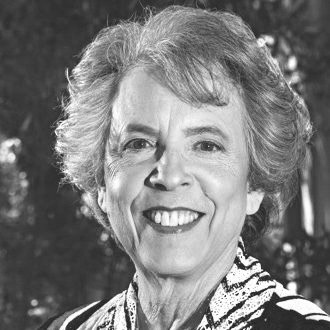This week’s Torah portion begins: “YHVH appeared to Abraham as he was sitting at the entrance of the tent … looking up, he saw: behold, three men standing opposite him. As soon as he saw them he ran from the entrance of the tent to greet them, and bowing down to the ground he said: ‘Adonai, if I have found favor in your sight, do not go on past your servant. Let a little water be brought; bathe your feet and recline under that tree.’ ”
This verse is the proof text for the mitzvah of hachnasat orchim, welcoming guests. Abraham — still recovering from his circumcision surgery! — gets up, welcomes these guests, makes them comfortable and feeds them. We learn in the Talmud that hachnasat orchim is one of the activities that benefit us not only in this world but also in the World to Come. However one might understand the idea of the World to Come, there seems to be the suggestion that a big tent is a kind of heaven.
Later, we discover that these guests are angels who have come to tell Abraham and Sarah that they will have a child. But Abraham doesn’t seem to know they are angels. To him, they are just three strangers. He calls them Adonai (My Lords, Sirs). Rashi offers a different interpretation of why Abraham calls them Adonai. Rashi imagines that Abraham was in the middle of praying when he noticed the strangers. So Abraham says: “Adonai, God, excuse me for a moment while I tend to these strangers.” In other words, the moment the strangers appeared, he interrupts his prayer to welcome these strangers and to take care of their needs.
Paying attention to strangers, welcoming guests and caring for their needs appears to be even more important than talking to God!
Abraham is the living embodiment of his tent. The Midrash tells us Abraham designed his tent intentionally to be open on all four sides — open to every stranger passing by from any direction in the desert. Abraham has an open heart and an open hand. He is not content to wait for guests, but rather seeks them out, runs to greet them, brings them inside and takes care of them.
The first blessing of the Amidah ends with the words: “Baruch Ata Adonai, Magen Avraham — Holy One of Blessing, the Shield of Abraham.” Traditional commentary interprets this first blessing as our presenting our credentials before God. “Hello, God,” we are saying, “you might not know me very well but you remember my parents, don’t you? I am the child of Abraham and Sarah. Remember them? Remember all that they did? Remember all you did for them? You are the One who helped Sarah and protected Abraham. You were the shield of Abraham, remember? For their sake, could you do the same for me?”
But Chasidic commentary reads the prayer differently. It suggests that when we call God Magen Avraham, we are asking God to shield the “Abraham” inside of us — to protect the dimension of us willing to see God’s face in the faces of strangers. We are asking God’s help to protect the part of us that wants to have an open heart and to be an open tent. That part of us needs protection because it is so very fragile and perhaps not instinctive.
It is hard to see God’s face in the face of strangers. It is even hard for us in our synagogues to look up from our own prayer books and notice newcomers; to stop what we’re doing and make them feel welcome. How much harder is it to invite them to sit with us at the Kiddush, or to invite them home for Shabbat dinner? Ron Wolfson argues that the first step in creating sacred communities is establishing a “welcoming ambience” for newcomers and spiritual seekers. Imagine what a synagogue would be like if it were really a place of “radical hospitality,” a genuine Abraham’s tent!
And as hard as this might be, it is easy compared to seeing God’s face in the faces of those who do not come to our synagogues — all those people who really are strangers, people we don’t usually interact with, or people who serve us, but remain largely invisible: undocumented immigrants, people from different backgrounds or of a different economic status.
Those biblical strangers turned out to be angels. But Abraham only discovered this truth by welcoming them in and taking care of them. Imagine the angels we could meet if we could shield the Abraham in each of us.
Laura Geller is a senior rabbi of Temple Emanuel of Beverly Hills (tebh.org).





















 More news and opinions than at a Shabbat dinner, right in your inbox.
More news and opinions than at a Shabbat dinner, right in your inbox.